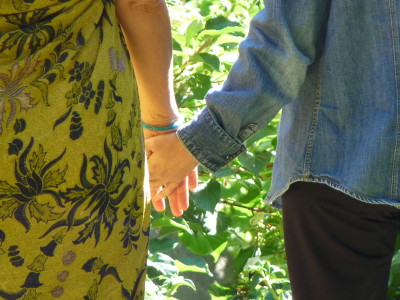
Recently I spent a day with a very good friend. Four years ago we were colleagues. The last 18 months have been more defined by friendship. We ask each other questions. We laugh and cry at the answers that we share with each other. We tell each other stories. We count on each other to reflect back the stories that we can’t fully see. We walk. We wander, figuratively and literally. We companion each other in a way that makes a day like we recently shared seem more like a satisfyingly full week. When we hugged it out to say goodbye, we thanked each other for this companioning.
Also recently, I met with a group of friends for a board meeting of a non-profit that we are all serving on together. Colleagues again, who are or are becoming friends. Our meeting tone was set quite deliberately in the beginning — that though we have work to do and a few decisions to make, at least half of what we were doing together was building an energy. Re-touching the spirit and potential of our work together. By the end of that call, it was clear to me that we were companioning each other.
Companions are essential, aren’t they. Or, just lovely. There are some people that we just need, even if only for a season or two. One layer of our companioning is to get stuff done. Cleaning the house. Taking out the trash. Chopping the wood. Carrying the water. And then there is the layer of companioning that is being with each other to journey into and sometimes through unknowns. The future of the organization. The state of the world. The loss of a loved one. What it means to be working together. What it means to be human.
I know that there are many alternative phrases and efforts that could be spoken here. Team-building comes to mind. And that is good. It just feels a bit more utilitarian than companioning. It’s the difference that one of my grad school professors used to state in being a tourist rather than a traveller. Tourists sample the buffet of experiences for ten days. Travelers learn where to get the food and then they do the cooking themselves.
Another good friend has often declared that “friendship is my business model.” I would say companioning too. It makes for rather satisfying days, doesn’t it.
